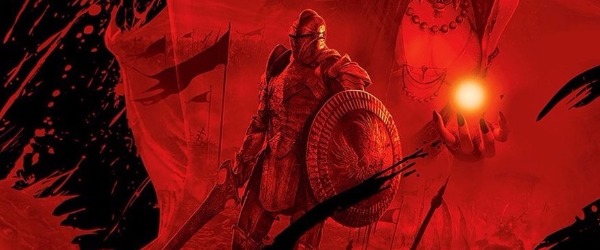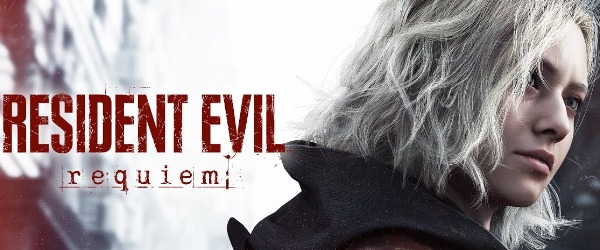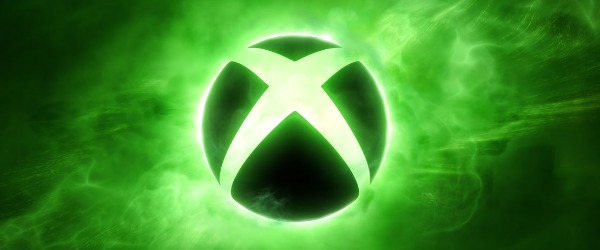
Greatest Video Game Composers: Peter McConnell - Article
by Taneli Palola , posted on 26 July 2016 / 8,090 ViewsOnce again we're taking a look at a composer whose name you may not be familiar with, but whose music you've more than likely heard at some point in the last 25 years. Peter McConnell studied music at Harvard University, where he met and befriended another future video game composer, Michael Land. After graduating, Land would go on to work for LucasArts, and while working on a little project called Monkey Island 2: LeChuck's Revenge he asked McConnell to join the company to help him with his work. Thus began Peter McConnell's long history of composing music for video games.
The first thing the two created at LucasArts was an interactive music system called iMUSE, which basically allows the in-game music to always match the events taking place on screen at any given time. The idea for the system came about when Land was composing music for Secret of Monkey Island, which proved to be a very frustrating experience due to the limits of the previous audio system used by LucasArts.
The new music system was debuted in Monkey Island 2, which also happened to be the first game McConnell composed music for. He collaborated with two other composers on the game - composers who would go on to become LucasArts mainstays over the next decade - Michael Land and Clint Bajakian. The success of the game helped establish McConnell within the company as one of its main composers.
He worked with the same two composers to create the soundtrack for 1992's Indiana Jones and the Fate of Atlantis, which would prove to be McConnell's second highly successful game in just as many attempts. The title featured both original music and arrangements of John Williams' famous Indiana Jones theme and to this day is considered a classic of the adventure game genre.
McConnell's third project was yet another movie based video game, Star Wars: X-Wing. It featured a largely original score created by the same team that worked on Fate of Atlantis, with some additional pieces from the films. That same year McConnell also worked on another game based on Star Wars - a rail shooter called Star Wars: Rebel Assault. Although the soundtracks to both games were excellent, Rebel Assault was an otherwise forgettable and mediocre game.
1993 was a very busy year for McConnell, as in addition to working on the above two Star Wars games he also composed music for two classic adventure games - Sam & Max Hit the Road and Day of the Tentacle - again working together with Bajakian and Land. Sam & Max featured a jazz influenced score, while Day of the Tentacle took influence from and parodied classical music. The contrast between the two games' scores helped establish McConnell's versatility as a composer.
In 1994 he composed music for just one new game – Star Wars: TIE Fighter. He would follow this up in 1995 by working on yet another Star Wars game – Star Wars: Rebel Assault II – The Hidden Empire. By this point McConnell had become one of the leading composers at LucasArts. Not only would he continue to create music for most of the company's adventure games, but also to a large number of future Star Wars related titles as well.
McConnell also composed music for another game in 1995 - the LucasArts classic Full Throttle. It was the first game where Tim Schafer was the project lead after having already worked on numerous other beloved adventure games such as the first two Monkey Island games. Full Throttle was also the first solo work by McConnell.
The following year McConnell created the soundtrack to another LucasArts game called Afterlife, a satirical take on the God game genre where the player is tasked with creating functional versions of heaven and hell, before he then provided some of the music for 1997's Curse of monkey Island as a secondary composer (Michael Land created most of the soundtrack).
In 1998 McConnell would create the soundtrack that truly established him as one of the best composers working in the video game industry – Grim Fandango. His score for the game combined elements from orchestral music, South American folk music, jazz, swing, and various other genres. The end result is an absolutely wonderful soundtrack quite unlike anything else ever composed for a video game. It is a stellar score from beginning to end, and one you really should go out of your way to listen to.
1999 was a slower year for McConnell as he worked as a music and sound editor on various Star Wars games. In 2000 he would return to compose music for two familiar franchises, first with Star Wars: Force Commander, an RTS with a soundtrack consisting of remixes of John Williams' original scores from the films, and then with Escape From Monkey Island, for which he was one of five composers that worked on the soundtrack.
As the new millennium began McConnell's relationship with LucasArts came to an end - he left the developer in 2000 and became a freelancer. Perhaps as a result he didn't work on any high profile games during the next few years. His first high profile post-LucasArts project turned out to be 2004's Sly 2: Band of Thieves for the PS2. The game became a critical success upon release and gave McConnell an immediate boost in recognition after having been largely absent from the industry for a few years.
After that he began a long-standing working relationship with Double Fine Studios, the development studio founded by Tim Schafer after he left LucasArts. The game in question was none other than 2005's Psychonauts, one of the most beloved cult classics of the 2000s. The music for the game still stands tall as one of McConnell's best works.
That same year he also returned to compose the soundtrack for the next Sly Cooper game, the series' third installment which was called Honor Among Thieves. Over the next few years McConnell would work fairly sporadically as a composer, crafting the soundtracks to the relatively low-key Calling All Cars! in 2007 and an action-adventure game called Insecticide for PC and DS in 2008.
In 2009 he would once again collaborate with Double Fine, creating all of the original music for the metal music inspired action/RTS game Brütal Legend. McConnell composed the music with both an orchestra and a metal band to tie-in with the licensed music found in the game and as such is an excellent showcase of his ability to blend and use a variety of different musical genres to create wonderful music. If you haven't heard the game's original score I'd definitely recommend checking it out.
His next work as a composer was for Costume Quest in 2010, which was yet another Double Fine title. It featured another very good soundtrack from McConnell but the game itself didn't make much of a lasting impact. That same year he would also work as the lead composer on the Kinect exclusive Kinectimals, creating the game's main theme among other tracks.
2011 would turn out to be a very busy year for McConnell. Not only did he compose the soundtracks to three Double Fine games (Stacking, Iron Brigade and Sesame Street: Once Upon a Monster), but he also worked on Kinect Disneyland Adventures. The three Double Fine games all received good reviews upon release and their soundtracks were well received as well. They also once again showcased McConnell's versatility, as each game had a very distinct soundtrack.
2012 was much more low-key - his only musical contribution was as part of a team for another Kinect game called Kinect Party, which was also made by Double Fine. 2013 saw him return back to one of his most well known series when he composed the soundtrack to Sly Cooper: Thieves in Time. The score featured a wide variety of musical styles and saw McConnell build upon the soundtracks he had created for the previous Sly Cooper games.
His other work in 2013 was for Plants vs. Zombies 2: It's About Time. The score was very well received and as a result McConnell would later return to the series to compose the soundtrack for Plants vs. Zombies: Garden Warfare in 2014, as well as for that game's sequel, Garden Warfare 2, which released earlier this year.
In 2014 McConnell received a huge boost in recognition for his work when he composed the soundtrack to one of the biggest and most enduringly popular video game releases of the last several years – Hearthstone: Heroes of WarCraft. For the soundtrack he mixed elements of celtic music with blues rock, as well as music from previous WarCraft games. The music was an excellent fit for the tavern setting of the game and solidified McConnell's position as one of the best composers working in the industry.
That same year he would also create the scores for two more Double Fine titles - Broken Age Act 1 (Act 2 was released in 2015) and Costume Quest 2. In 2015 he would also revisit one of his most highly regarded works when Double Fine developed Grim Fandango Remastered. After going over his music for the original game and finding many of the recordings rather poor sounding he decided to simply re-record the entire soundtrack with a symphony orchestra.
Over the last 25 years McConnell has established himself as one of the most prolific and talented composers working in the video game industry today. During that time he has composed some of the best and most memorable pieces of music for a variety of different types of games using numerous different genres of music.
Fans of McConnell have good reason to be optimistic about the future as well, as he is already set to compose music for numerous upcoming video games, including the highly anticipated Psychonauts 2. In general, as long as Tim Shafer's Double Fine Productions continues making games it's a fairly safe bet that Peter McConnell will continue to create music for video games.
What are your favourite soundtracks or pieces of music by McConnell? Let us know in the comments below, and as always, thanks for reading.






















 Essay Pro
Essay Pro